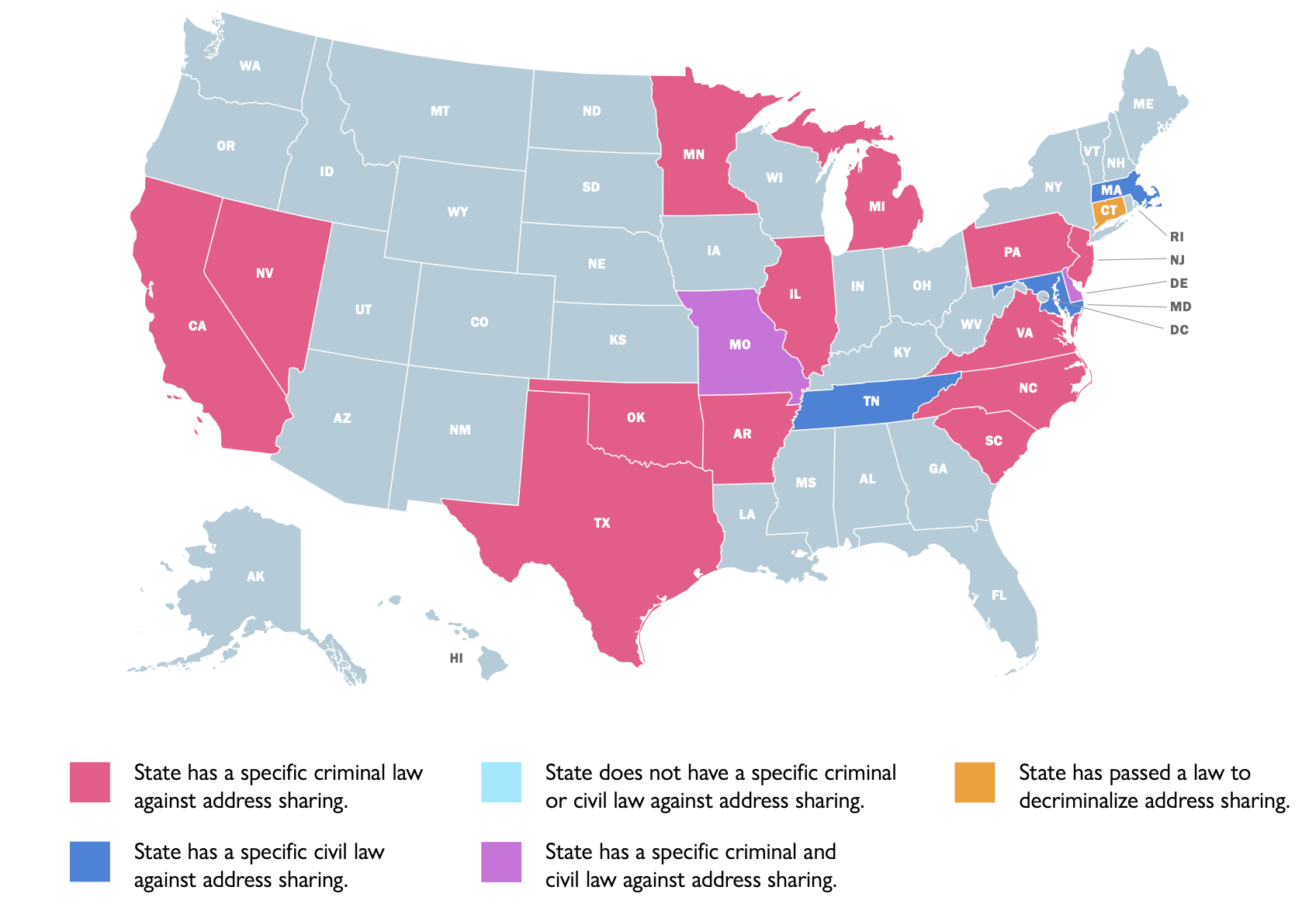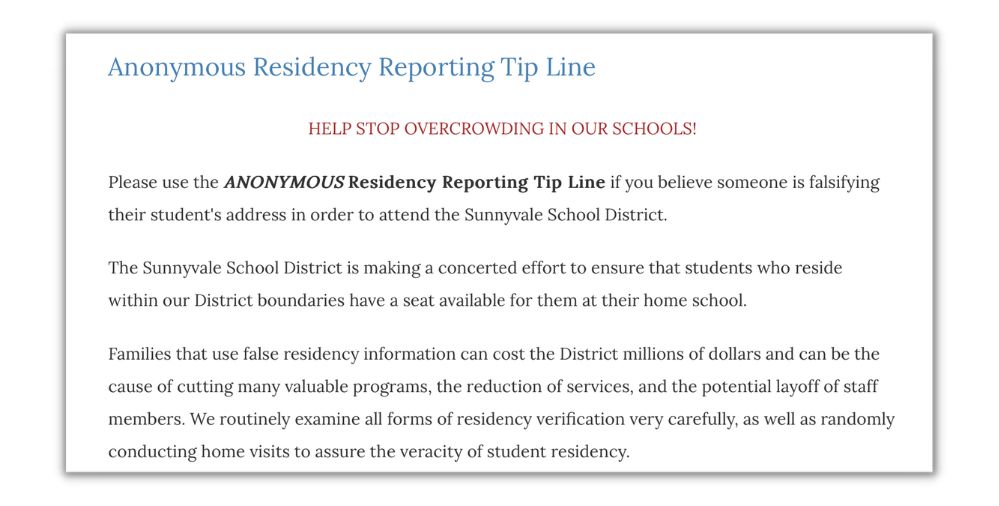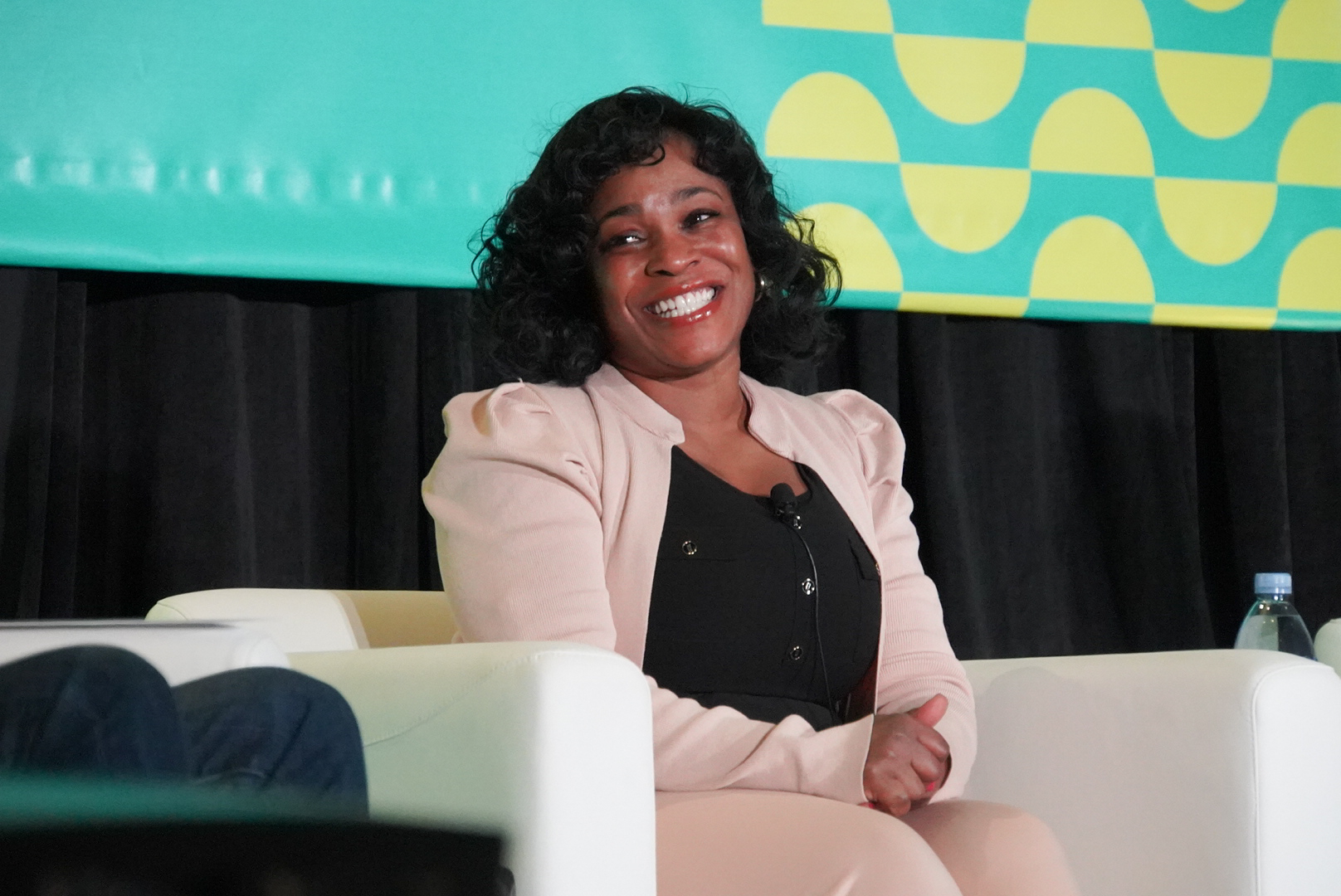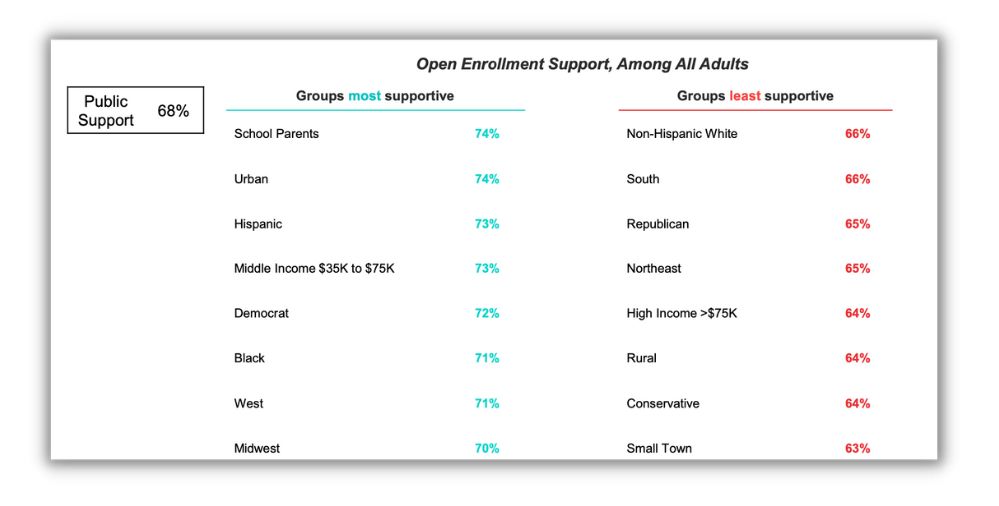Report: In 24 States, Using False Address to Get Into a Better School is a Crime
Parents can be jailed or face fines up to $10K. ‘No one wants a mug shot,’ said an Ohio mom who spent 9 days locked up.
By Linda Jacobson | August 8, 2023In nearly half the states in the country, parents risk criminal prosecution — and jail time — if they use a false address to get their children into a better school, shows.
Georgia is one of them, something Valencia Stovall, a former state legislator, tried to change in 2020.
She sponsored a bill that would have allowed a parent to use an address outside their attendance zone as long as the person living there gave permission. The legislation also would have exempted such parents from fraud or forgery charges.
“No parent wants to drive an hour and a half in traffic to get their child in another school,” said Stovall, a Democrat who supports school choice. “They are thinking about the future of their children, and they know education is the key.”

The bill didn’t pass, and to date, only Connecticut has decriminalized what the report — published Tuesday by nonprofits Available to All and Bellwether — calls “address sharing.”
In a post-pandemic era where more parents are shopping around for schools that better suit their children’s needs, the authors hope other states follow Connecticut’s lead. According to co-author Tim DeRoche, who has previously written about exclusionary , the issue falls under the radar because it’s more common for districts to “quietly kick the kids out of schools, using the threat of prosecution.”
When districts do involve law enforcement, criminal charges and stiff fines often land on the backs of Black, Hispanic and low-income families, he said. The report points to a in Philadelphia where across 20 districts, families questioned about their residency or disenrolled from schools were disproportionately nonwhite.
“The enforcement is highly selective,” he said. If a school isn’t overcrowded, officials might not report a good student who fits in and doesn’t get in trouble, DeRoche said. “There is a lot of winking and nodding that goes along with this.”
The authors urge states to repeal laws that target address sharing and refrain from using general statutes, like those against theft or perjury, to charge parents who lie about their residence. They also support open enrollment laws that allow families to choose a school in any district, regardless of where they live.
“When Good Parents Go to Jail” follows a 2021 Bellwether report that shows how district boundaries separate families by race and class, with low-income and minority parents often unable to attend a better school in a nearby district even when the district is within walking distance of their home.

Data for sale
As long as attendance is tied to a student’s residence, DeRoche said, districts will be on the lookout for families trying to skirt the law.
“In some ways, districts have to enforce it because these coveted public schools are largely full,” he said.
Those highly desirable schools and districts use a range of investigative tactics to identify offenders, the report shows.
In released with the report, private investigators say they sometimes use video with night vision software to capture students’ faces on dark winter mornings. Districts also use tip lines and offer rewards to encourage those with knowledge of address sharing to make a report.

, a business that works with over 150 districts in multiple states, purchases U.S. Postal Service records and other databases to track down where students actually sleep at night, said Mike Auletta, a New Jersey-based private investigator who runs the company.
“It’s very difficult these days for a person in the wild to completely conceal where they live,” he said. “You’d be surprised how much of your data is for sale.”
With two young children and a wife who teaches special education at a public school, Auletta said he understands both sides of the issue. But districts are trying to protect their bottom line. Address sharing “strains budgets,” he said. “Now we don’t have enough teachers. Now we have 40 kids in a classroom.”
During the pandemic, which upended students’ living arrangements and caused educators to worry that some had stopped attending school anywhere, districts lightened up on enforcement. But now, more are conducting residency audits because “they’re done putting out fires,” he said.
‘Safe and educated’
Some officials just want to grasp the extent of the problem, while others, especially those with top-ranked sports teams or highly regarded special education programs, enforce the rules more aggressively.
Residency fraud can impact more than just the student in question. A had to forfeit football titles for the 2013 and 2014 seasons because a player’s family provided false residency documents.
In one of the most well-known examples of “boundary hopping,” Akron, Ohio, mother was convicted of two felonies for falsifying records in 2011 after she used her father’s address to enroll her two daughters in the suburban Copley-Fairlawn district.
She spent nine days in jail, but former Gov. John Kasich later to misdemeanors.

“If I had had my way, I would have never gotten into trouble,” said Williams-Bolar, now a parent liaison for Available to All. “It’s very scary for an average parent that just wants their child safe and educated.”
was split. Supporters argued she and her children were victims of an inequitable system, while critics said her punishment was justified. Similar debates over the ethics of address sharing show up on community and sites .
A Philadelphia man recently defended his actions in a commentary about school choice. “What the hell — the statute of limitations must be up: I lied, so my son could go to top-rated McCall Elementary School in Society Hill,” . “And I make no apologies for it. We didn’t have financial capital at the time, but we had social capital.”
Parents confronted with such decisions sometimes contact Williams-Bolar to share their stories, but she understands why most are reluctant to speak publicly.
“Many parents are worried that they will be the next Kelley Williams-Bolar,” she said. “No one wants a mug shot.”
A push for open enrollment
Some states use civil penalties, such as fines or community service, to discourage address sharing. But back tuition for an out-of-district student can run in the hundreds of thousands of dollars, according to the report. The District of Columbia attorney general, for example, multiple parents who live outside the city for lying about their residency. One family owed over $700,000.
In addition to decriminalizing address sharing, Available to All wants states to expand open enrollment policies that allow students to attend school outside their district or zone, like and did this year.
Most states have some provision related to open enrollment on the books, but barriers like tuition still keep families from taking advantage of the opportunity, DeRoche said. have laws that make the process easier, like offering transportation, according to the libertarian Reason Foundation.
The debate over open enrollment played out in Missouri this year, with education leaders, especially in rural areas, that would allow districts to opt in. They argued their schools would lose enrollment and the funding that goes with it. And they said it’s difficult to compete for students when they can’t raise as much in property taxes as wealthier districts. The in the Senate, but is likely to return next year.

The idea can be just as controversial in dense urban areas where well-off families pay steep home prices to buy into neighborhoods with the most sought-after schools, DeRoche said.
“These are families with [Black Lives Matter] , but they go apoplectic if you suggest that maybe this school shouldn’t be closed to families outside the zone,” he said. “[That] leads to the distorted home prices, which exacerbates the problem that only wealthy folks can attend the best public schools.”
Disclosure: Stand Together provides funding to Available to All, Bellwether and ���˶���. Andy Rotherham co-founded Bellwether and sits on ���˶���’s board of directors.
Help fund stories like this.
